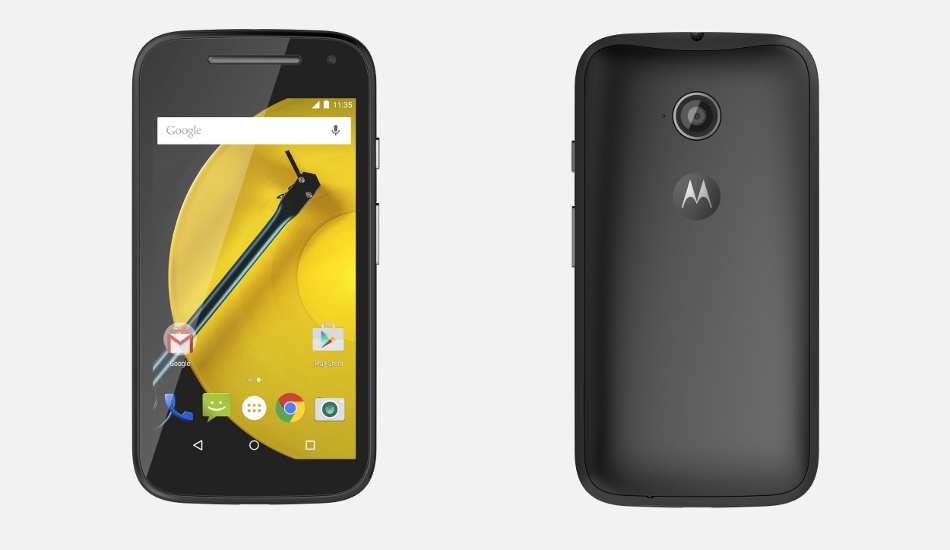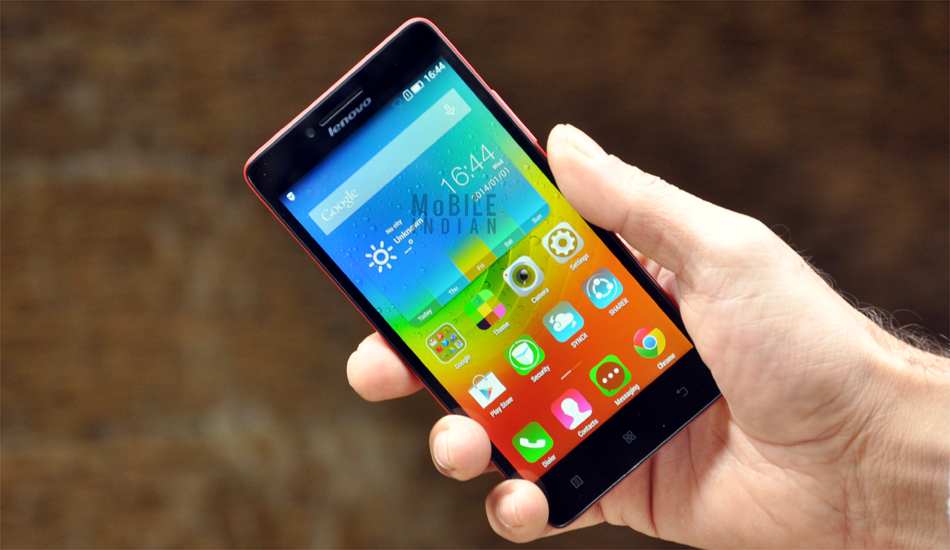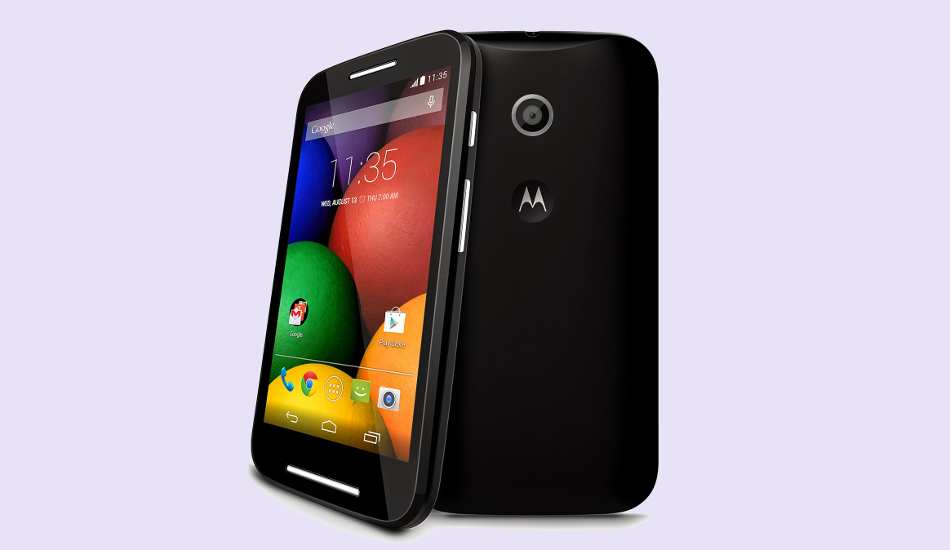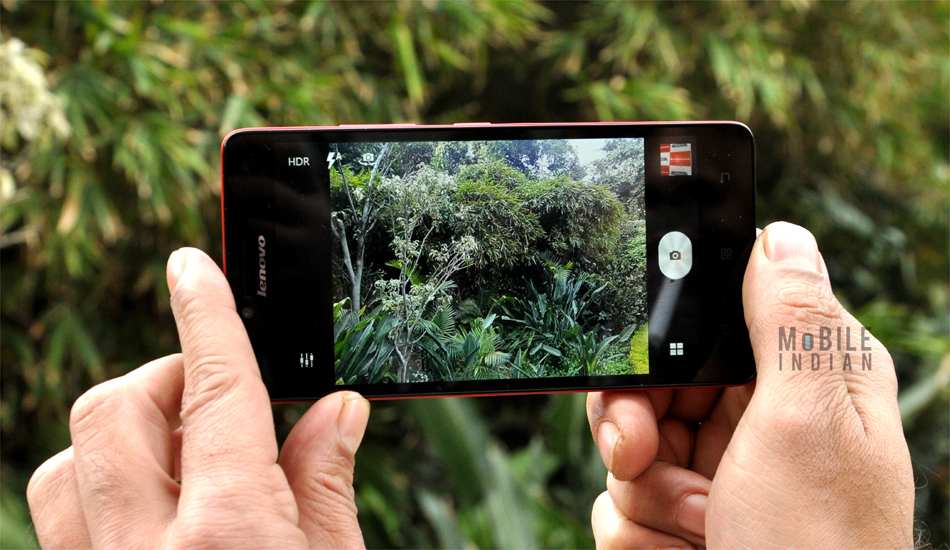Motorola today launched its Moto E (2nd Gen) with 3G in India for Rs 6,999. At the same price the popular Lenovo A6000 is also available.
Ofcourse the biggest difference between the two is the connectivity feature – 3G versus 4G. Let’s check out what other differences are there between these two.
Design
Like its predecessor, the Moto E (2nd Gen) is a curvier and bulkier smartphone. It is 129.9 mm tall, 66.8 mm wide and its thickness varies from 5.2 mm to 12.3 mm. The handset weighs 145 grams. The Moto E (2nd Gen) comes in gold, black, and white colours. Its back panel doesn’t look like a matte finish panel; it appears glossy but I wouldn’t fret about it much as gripping a 4.5 inch display bearing smartphone wouldn’t be a problem much.
The Lenovo A6000 on the other hand is a much lighter and thinner smartphone (it isn’t curvy, thickness is same througout). The Lenovo A6000 measures 141 x 70 x 8.2 mm and weighs just 128 grams. The Lenovo A6000 has also a matte finish back panel.
Display
The Lenovo A6000 comes with a 5 inch IPS display with 1280 x 720 pixels (high definition) resolution, thus offering 294 ppi pixel density. During our review, we were quite satisfied with its display’s brightness levels as well as touch response.
The Moto E (2nd Gen) has a 4.5 inch IPS display with a Resolution of 540 x 960 pixels, resulting in a Pixel density of 245 ppi. We hope it to have good brightness as well as touch response. Since both have IPS display, viewing angles must be good in both A6000 and Moto E (2nd Gen).
Processor & Storage
The Moto E (2nd Gen) has a quad-core 1.2 GHz Snapdragon 410 Processor with 1 GB of RAM. The GPU is a Adreno 306. The Internal Memory is 8 GB, to which another 32 GB can be added via microSD card.
The Lenovo A6000 offers the 1.2 GHz 64 bit Qualcomm Snapdragon 410 quad core processor, Adreno 306 graphics processor and 1 GB RAM. It has internal memory of 8 GB, to which another 32 GB can be added with a microSD card. Note that during our review, A6000 managed to hold a 64 GB micro SD card as well.
Software
The Lenovo A6000 runs on Android KitKat and has Lenovo’s Vibe 2.0 UI. Lenovo’s own UI adds another skin on the Stock Android and has a few additional features.
The Moto E (2nd Gen) runs on Android Lollipop, and runs on the stock UI, making it lighter on system resources and ofcourse with the latest OS comes new features.
Battery
The Moto E (2nd Gen) has a 2390 mAh battery, which is sufficient for up to 24 hours of mixed usage, according to Motorola.
Lenovo A6000, on the other hand, offers a 2300 mAh battery which claims to offer 13 hours of 3G talktime.
Clearly, Moto E (2nd Gen) has an advantage here over Lenovo A6000 and why it would not be – it has the same processor as Lenovo A6000 besides having a smaller display and latest OS.
Camera
The 8 Megapixel primary camera of the Lenovo A6000 is equipped with face detection, auto-focus, HDR, flash, etc. In the front it has a 2 megapixel fixed focus selfie taker. The A6000 did impress us during our review; you can check out its sample images here (https://www.themobileindian.com/picture-story/251).
On the other hand, the Moto E (2nd Gen) has a 5 megapixel primary camera with auto-focus, geo-tagging, panorama, HDR, and video recording at 720p at 30 fps. The new Moto E has a VGA camera in its front.
Connectivity
The Moto E (2nd Gen) 3G version has dual SIM phone with Bluetooth, GPS, WiFi. The Lenovo A6000 not only is a Dual-SIM phone, but also has 4G (India’s cheapest 4G phone), Bluetooth 4.0, GPS, WiFi.
Wrapping Up
As compared to Lenovo A6000, the Motorola Moto E (2nd Gen, 3G) seems to have better battery life and the latest software.
However, it is the Lenovo A6000 that impresses on most count. It has not only a bigger display but also it seems to have a better camera (as we have not yet reviewed the Moto E 2nd Gen). Also, it offers 4G connectivity.
We will try to review the Moto E (2nd Gen) as soon as possible but meanwhile you can check out our review of Lenovo A6000 here.


